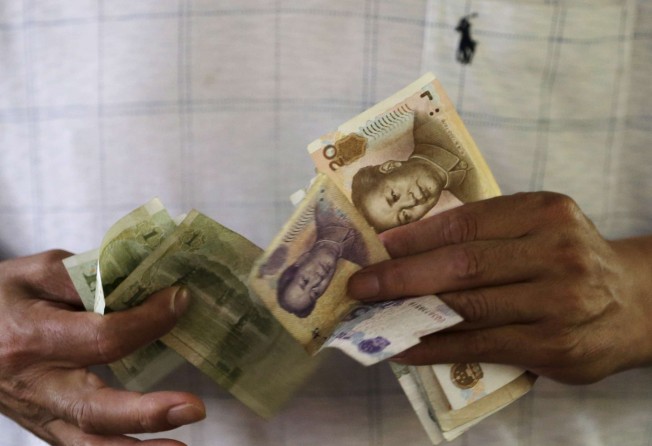Lucky seven? Not for China’s central bank
Midnight notice insisting yuan hadn’t depreciated to seven per US dollar, as some media reported, highlights key psychological barrier for Beijing

It’s quite unusual for a central bank to send out an urgent notice at midnight to remind the whole world that the exchange rate hasn’t reached a certain level yet.
At 11.48pm on Wednesday, the People’s Bank of China issued a brief statement on its Weibo account saying that it “strongly condemned” irresponsible media reports that the onshore yuan exchange rate had depreciated to below seven per US dollar.
The yuan was trading “steadily” against the dollar in the range of 6.9500 to 6.9666 on Wednesday, the central bank added.
Analysts said the bank’s strong reaction to a small piece of market information, or misinformation, displayed Beijing’s dread and fear of losing control of the yuan exchange rate narrative.
Zhang Yu, an analyst at Minsheng Securities, said the central bank was facing “a tough challenge” to convince markets the yuan would not drop even more.
China has been assuring the market that the yuan has no fundamental basis to weaken continuously, and the PBOC has been trying to remind investors that the yuan’s value against a basket of currencies is stable. But the public and market still focuses on the relationship between the yuan and the greenback.
An expectation for the yuan to weaken further versus the dollar is translating into capital exodus and a quick depletion of China’s foreign exchange reserves, which have shrunk by nearly US$1 trillion since June 2014.
The timing is particularly sensitive as China will renew the annual US$50,000 foreign exchange purchase quota for every citizen on January 1, a move that could lead to a fresh wave of forex buying.
“Given that the foreign exchange transaction quota for the new year is coming and that dollar buying still prevails in the market, the central bank does not want to see any event which may fuel depreciation expectations,” said a trader with a big state bank.
Xie Yaxuan, research chief with China Merchants Securities, said the central bank “should have a transparent yuan policy” and that it was “quite natural” for the yuan to weaken to below seven against the dollar if the US currency continued to strengthen.
“The PBOC does not want to see market panic, nor does it want to signal that it is intending to depreciate the yuan,” Xie said.
It was the second time in six months the central bank blasted “irresponsible media” while defending the yuan exchange rate. Six months ago, it “strongly condemned” media reports that the yuan would weaken to 6.8 during 2016.
Bearish sentiment on the yuan has put the central bank into a difficult position: it either lets the yuan fall against the dollar or burns through its remaining foreign exchange reserves to support the yuan, according to Christopher Balding, an associate professor at Peking University’s HSBC Business School in Shenzhen.
“Once the US$3 trillion in forex reserves is breached, they have to start having a plan to float the yuan,” Balding said.
“What the Chinese policymakers are trying to target is to let the yuan decline at a very controlled rate, like landing a plane at a predictable pace.”